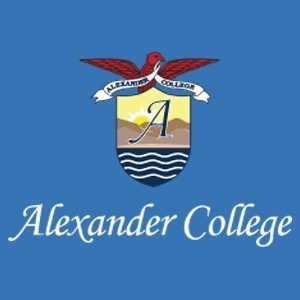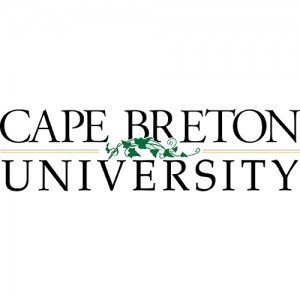Photos of university
The Communication Studies program at Concordia University offers students a comprehensive and interdisciplinary exploration of human communication processes across various contexts and media. Designed to provide a solid theoretical foundation combined with practical skills, this program enables students to critically analyze mass media, interpersonal communication, organizational communication, and digital media platforms. Students will examine how communication shapes society, influences culture, and impacts individual behaviors, preparing them for careers in media production, public relations, advertising, corporate communication, journalism, and other related fields. The curriculum covers core topics such as communication theory, media history, media literacy, intercultural communication, and emerging digital technologies. Through a combination of lectures, seminars, and hands-on projects, students will develop essential skills in research, critical thinking, strategic communication, and multimedia production. The program also emphasizes ethical considerations and social responsibility in communication practices, fostering a nuanced understanding of the role of media and communication in a globalized world. With access to Concordia’s modern facilities and expert faculty members, students are encouraged to engage in internships, research projects, and community initiatives to gain practical experience. Whether aiming for a career in media, corporate sectors, non-profit organizations, or academia, graduates of the Communication Studies program will emerge with the knowledge and skills necessary to effectively navigate and shape the complex landscape of modern communication. This program is ideal for individuals passionate about understanding the power of communication and eager to make a meaningful impact in their chosen field.
The Communication Studies specialization at Concordia University offers a comprehensive exploration of the fundamental principles and contemporary issues in the field of communication. This program provides students with a solid foundation in the theoretical and practical aspects of communication processes, including interpersonal, organizational, mass, and intercultural communication. Throughout their studies, students engage with a diverse array of topics such as media literacy, digital communication, communication technologies, media studies, and the societal impacts of communication practices.
The curriculum emphasizes critical thinking, analytical skills, and effective communication strategies, preparing graduates to understand and navigate the complex media landscape. Students have opportunities to develop their research capabilities through various projects, essays, and presentations, often utilizing both qualitative and quantitative methodologies. The program also encourages experiential learning by integrating internships, collaborative projects, and engagements with industry professionals, enabling students to acquire practical skills and real-world experience.
Moreover, the specialization emphasizes the role of communication in shaping public opinion, influencing cultural norms, and fostering social change. Courses explore current trends such as social media dynamics, ethical issues in communication, and the impact of digital platforms on identity and community building. Students are encouraged to critically evaluate media messages and understand the ethical responsibilities of communicators in a globalized world.
The faculty comprises experts with diverse research interests and industry experience, providing mentorship and guidance tailored to students' academic and career goals. Graduates of the Communication Studies specialization are well-equipped for careers in media, public relations, corporate communication, advertising, journalism, and other related fields. They are also prepared for advanced studies, including graduate and doctoral programs, fostering lifelong learning and professional development.
By combining theoretical knowledge with practical application, the Communication Studies specialization at Concordia University aims to cultivate innovative thinkers and effective communicators who can adapt to the rapidly evolving media environment and contribute meaningfully to society.
Bachelor of Arts in Communication Studies specialization requires completion of 90 credits, including core courses, electives, and a capstone project. Students must undertake foundational courses such as Introduction to Communication Theories, Mass Media and Society, and Research Methods in Communication. Advanced courses include Media Production, Interpersonal Communication, Communication and Culture, and Digital Media Strategies. Elective options allow students to explore areas like Political Communication, Public Relations, Advertising, and Media Law. A minimum of 45 credits must be earned at the 300 or 400 level to ensure depth of study. The program emphasizes both theoretical knowledge and practical skills, encouraging internships and collaborative projects with media organizations. Students are required to complete a senior project or thesis in communication studies, demonstrating their ability to synthesize concepts and produce original research. Program prerequisites include a high school diploma or equivalent, and applicants are advised to submit transcripts, letters of recommendation, and a personal statement emphasizing interest in communication discipline. Admission standards are competitive, with a focus on academic achievement and relevant experience. Throughout the program, students are encouraged to develop critical thinking, effective communication, and media literacy skills essential for careers in media, advertising, public relations, and related fields. The coursework is complemented by seminars, guest lectures, and industry visits designed to connect students with professionals and current trends. Upon graduation, students are prepared for entry-level positions in media agencies, corporate communication departments, non-profit organizations, and government agencies. Advanced students may pursue graduate studies in communication, media studies, or related disciplines. The program aims to produce engaged, ethical communicators equipped to analyze and influence public discourse, contribute to media innovation, and uphold journalistic integrity in diverse contexts.
There is no specific information available regarding the financing studies for the Communication Studies Specialization at Concordia University. Typically, university programs offer various financial aid options, including scholarships, bursaries, grants, student loans, and work-study opportunities to assist students in funding their education. Concordia University provides a range of scholarships both for incoming and continuing students based on academic achievement, leadership, diversity, and other criteria. Additionally, students may access government student financial assistance programs available in Quebec and Canada, such as the Canada Student Loans and Grants Program. The university also supports part-time employment opportunities on campus, allowing students to earn income while studying. International students have access to certain scholarship programs designed specifically for them, as well as external funding sources from private organizations and governmental agencies. To determine the exact financing options and application procedures applicable to the Communication Studies program, students are encouraged to consult Concordia University’s official financial aid office and the university’s website. Overall, financing options aim to make education accessible and affordable, supporting students throughout their academic journey.
The Communication Studies program at Concordia University offers students a comprehensive education in the analysis, critique, and production of communication across various media and cultural contexts. This specialization emphasizes understanding the social, political, and technological factors that influence communication processes in contemporary society. Students engage with theoretical frameworks from disciplines such as media studies, cultural studies, and rhetoric, while also developing practical skills in media production, digital communication, and research methodologies. The program curriculum includes foundational courses in communication theories, media history, and communication ethics, alongside specialized courses focusing on new media, intercultural communication, and media policy. Students have opportunities to participate in hands-on projects, internships, and collaborative research, preparing them for careers in media, public relations, advertising, journalism, and other communication-related fields. The program is designed to foster critical thinking, effective communication, and a deep understanding of the evolving media landscape. Graduates are equipped to analyze media content critically, communicate effectively across diverse platforms, and contribute to advances in media and communication practices. The university supports a vibrant academic community, with access to state-of-the-art facilities including media labs and digital studios. Students are encouraged to explore interdisciplinary approaches, combining communication with other fields such as sociology, psychology, and business. The program seeks to produce well-rounded professionals capable of adapting to the dynamic communication industry. Overall, the Communication Studies specialization at Concordia University aims to prepare students for meaningful engagement in academic, cultural, and professional contexts related to media and communication.





